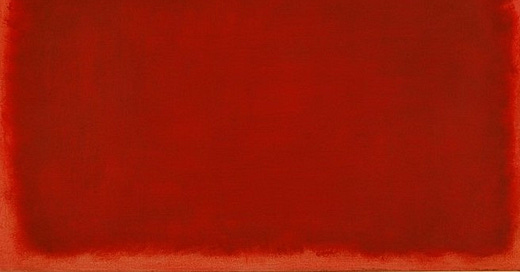Note: This edition has been switched to paid-only. Every weekly VFD is free to read when published, before being changed to paid-access after 7 days. Like what you read? Become a paid subscriber and help me do this for a living.
ENMORE – I was halfway through my third coffee of the day and Albert Pujol had just hit his 700th home run against the hated Los Angeles Dodgers when, scrolling my phone, I saw that 2010-era Music Blog Consequence of Sound had announced an updated list of old reviews:
They were doing this in the shadow of 2000s-era Music Blog Pitchfork, itself once a bastion for scathing NYC cynics who, as the old joke goes, would relish in giving Fat Fjörd & the Gum Stain Cherry Dicks a 10/10 review while pouring gasoline over anything too popular, too bubblegum, too known, or too outta the scene. Which was, I’ll admit, as much a part of being alive in the 2000s as anything else. People old enough will remember: while these days things might seem Dark, they were Dark back then, too. In the 2000s, all you had was dark criticism, anger, and rebellion. We were at war! And so, as if to acknowledge the beast at the door, Pitchfork empowered their own critics to rethink old pieces.
Still, to go back and read these reviews from both sites – a 2/10 for Taylor Swift maybe, a 5/10 for Lana Del Rey – is to return to a time when that was the belief of critics who saw themselves as worthy of sharing their opinions. Now, though, digital publishing has allowed us to take things back. I’m not sold on it.
Consequence, most notably, announced their decision to return to older reviews with fresh eyes while also, importantly, not involving the original writers and critics.
Instead, they would be updating things like a Harry Styles hit-piece (“we’re happy to now set the record straight and confirm that Styles’ debut solo record is a great one”) and apologise for giving Gen Z’s Justin Timberlake (not a dig) a C+ for his debut album. Then they also pointed at the Sonic the Hedgehog movie as something that deserved more attention. There’s more meat in there, but you get the idea.
As with most who fly close to the sun, the response was silent and then happened all at once. “We came off as callous in our treatment of the original articles and the authors behind them,” read an editor’s note. “That was not our intention and we apologize to the original writers of those pieces.”
But this is not so much callousness as desperation – a creeping need from media far surpassing Consequence to adapt or die. That adaptation – with the miracle of digital publishing – can easily surpass good intentions and landed on revision.
Here is the play: I am no prophet but I am honest. I understand the beauty in revising things and I understand the strength in admitting when you are wrong. But digital media’s access to revision – something now done to bend over to aggressively growing and searingly loud fanbases – is the main balance between you hitting your page view allocation this month and getting your home address posted on a K-Pop forum.
You are reading the room right, but everyone else left years ago. 2016: that was the time to begin revision.
We had a hungry culture looking at the world then, seeing clouds overhead, desperate for a combination of revolution and positivity – as long as you were on side. And this has borne inside of it an understanding from Older Heads that the younger generation is less cynical and more desiring of respecting art, respecting work, and respecting those who take the time to try and make something for the world to enjoy. Which was true, I think. Now, though, there is an honest hunger for blasted opinion.
To turn around and take the work of other writers – who you have hopefully paid to give their opinion – and use those words as a measuring stick of what you hate about yourself... Well, I think we can all see the problems.
It does not help, either, that these mistakes are increasingly being corrected to align more with consensus. I mean God – isn’t that part of your job? Are we digging Roger Ebert up to apologise for saying Spice World is “about five women whose principal distinguishing characteristic is that they have different names.”
I am not against revision – but I am against replacement. Criticism is vital to us because of the way it begs the audience to consider their opinion. It is also vital as a touchstone of a moment, a scene, and an approach to creation and art that will naturally change over time. I despise Rothko, but I’m not insisting we rethink how we value his coloured rectangles.
There’s no malice in Consequence or Pitchfork or anyone trying to justify themselves in a new era of creation. Just desperation to try and relate to generations who are becoming increasingly harder to understand.
But the Giants won. I can be happy about that.




